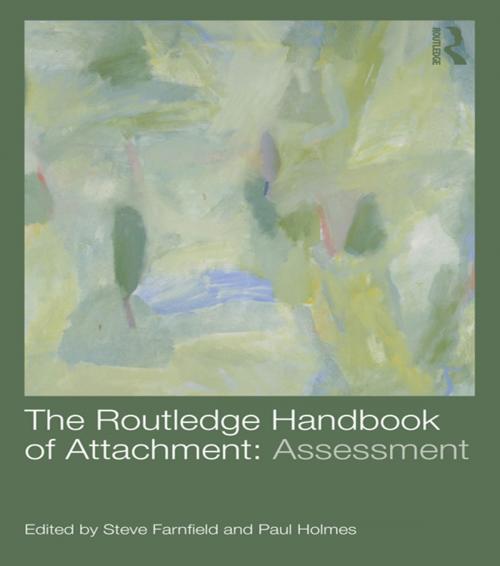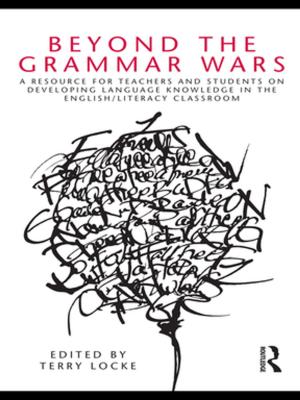The Routledge Handbook of Attachment: Assessment
Nonfiction, Health & Well Being, Psychology, Clinical Psychology, Mental Health| Author: | ISBN: | 9781317673064 | |
| Publisher: | Taylor and Francis | Publication: | June 27, 2014 |
| Imprint: | Routledge | Language: | English |
| Author: | |
| ISBN: | 9781317673064 |
| Publisher: | Taylor and Francis |
| Publication: | June 27, 2014 |
| Imprint: | Routledge |
| Language: | English |
The Routledge Handbook of Attachment: Assessment provides, in one volume, a detailed discussion of the formal measurement tools available to assess attachment across the age range, including with families. It contains comprehensive chapters on many attachment-based validated procedures for assessing parenting and evaluating risk, to enable professionals to decide what type of assessment is appropriate, who should conduct it and the usefulness of the results.
The book provides a detailed account of assessment measures of attachment to enable practitioners at all levels (including academic research workers) to decide which assessment procedure will best meet their need. The chapters are written by those who developed these tools and by people closely associated with them, and advocate an evidence-based model of assessment to increase fairness and transparency for families.
Providing a practical guide to the uses of attachment theory and research in professional practice with adults, children, parents and families, and a detailed account of all the current evidence-based tools that can be used in assessment, The Routledge Handbook of Attachment: Assessment is ideal for professionals and clinicians wishing to commission or undertake assessments of attachment, as well as academic research workers and students.
The Routledge Handbook of Attachment: Assessment provides, in one volume, a detailed discussion of the formal measurement tools available to assess attachment across the age range, including with families. It contains comprehensive chapters on many attachment-based validated procedures for assessing parenting and evaluating risk, to enable professionals to decide what type of assessment is appropriate, who should conduct it and the usefulness of the results.
The book provides a detailed account of assessment measures of attachment to enable practitioners at all levels (including academic research workers) to decide which assessment procedure will best meet their need. The chapters are written by those who developed these tools and by people closely associated with them, and advocate an evidence-based model of assessment to increase fairness and transparency for families.
Providing a practical guide to the uses of attachment theory and research in professional practice with adults, children, parents and families, and a detailed account of all the current evidence-based tools that can be used in assessment, The Routledge Handbook of Attachment: Assessment is ideal for professionals and clinicians wishing to commission or undertake assessments of attachment, as well as academic research workers and students.















